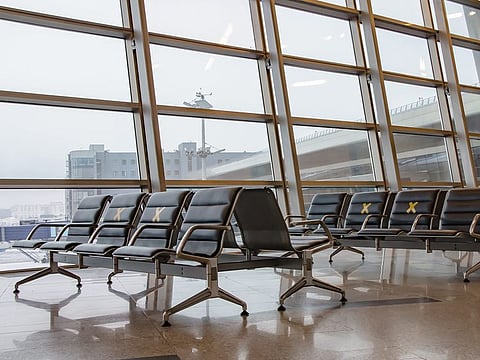For Middle East airlines, staff shortages and inflation weigh down recovery
It’s not just pilots and cabin crew that are in short supply at the moment

Dubai: Labour shortages and inflation are the biggest issues facing the aviation sector right now, according to HR consultancy Oliver Wyman. The industry is struggling to ramp up capacity due to a severe staffing deficit in most markets, while the Russia-Ukraine conflict adds to the fuel price spike, thus directly affecting airlines’ margins.
Labour shortages are across the board, from pilot to baggage handler and ticket agent to flight attendant to aircraft mechanic, said the consultancy. The report said that the conflict in Ukraine had “exacerbated” existing stress on commodity markets and supply chains, and resulted in flight restrictions due to closures of airspace and sanctions.
In January, Middle East countries represented the second largest destination for air travelers from Russia, at 28 per cent measured by scheduled seats (behind Europe with 42 per cent). In the other direction, UAE represented 9 per cent of the share of international seats headed to Russia at the same point in time, second only to Turkey.
Stresses come with opportunities
“Every downturn in the global economy has proven to be the time for new market entrants in the airline industry,” said André Martins, Partner – Head of IMEA Transportation and Services at Oliver Wyman. “This time around, it has been no different – we have seen multiple airline start-ups just launch or prepare for an upcoming launch such as Akasa Air in India, the proposed new airline in Saudi Arabia, and Avelo in the US, among many others.”
Some way off
Meanwhile, sustainable aviation is still a way off, with battery-operated and hydrogen-propelled commercial airliners facing technological and regulatory hurdles, and sustainable aviation fuel too expensive and too scarce to be a viable option, said the report.
Although companies like Qatar Airways and Dubai Airports have signed a pledge to work towards 10 per cent sustainable aviation fuel by 2030, the sector is likely to see an increase in emissions before they fall, said Oliver Wyman.
“Air cargo is a bright spot, driven by a growth in e-commerce during the pandemic, and shortage of truckers,” said the report.
Business travel lags
Inflation and labour shortages aren’t the only lingering effects of COVID-19. For the travel sector, one of the more painful consequences has been the slow return of the business traveller. By mid-May, there was still more than a 34 percentage-point gap between the recoveries in the leisure and corporate travel segments, only slightly better than the spread that existed toward the end of 2021, the report said.
Starting in late April, leisure began regularly besting its performance in 2019, with the week of May 22 almost 4 per cent higher than the same week pre-pandemic. Corporate travel, on the other hand, has seen a more gradual improvement, stuck at just under 31 per cent below 2019 traffic for the same week in May.
Sign up for the Daily Briefing
Get the latest news and updates straight to your inbox



